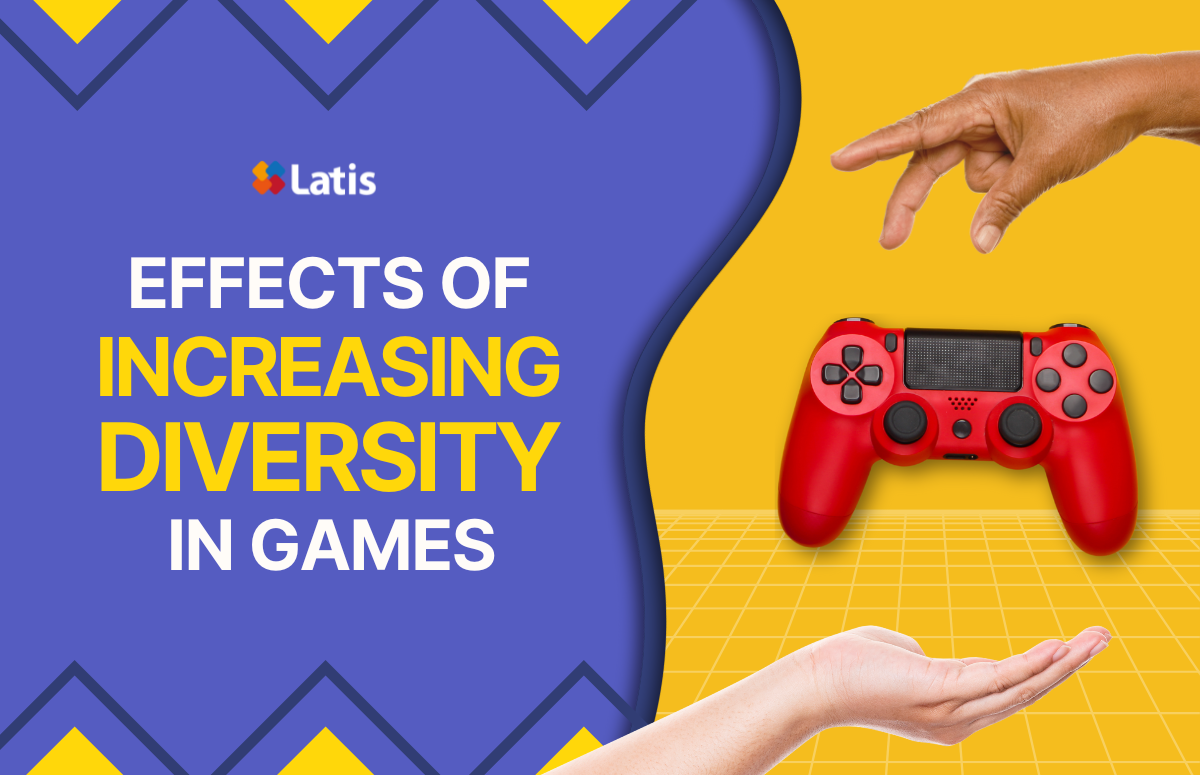
Let’s talk about how video games have changed from basic graphics to lifelike worlds where you can explore and find new things. Games now include more types of people and cultures, which makes them more interesting and relatable. We’ll see how this diversity is making games better and affecting both the industry and the players.
Representation and Inclusivity
One of the most significant effects of increasing diversity in games is improved representation and inclusion. By featuring characters from diverse backgrounds, including different races, ethnicities, genders, sexual orientations, abilities, and body types, games become more reflective of the real world. This allows players from marginalized communities to see themselves represented in games, fostering a sense of belonging and validation.
With the support of companies like Latis Global, game developers can ensure that their games authentically capture diverse cultures through expert localization services. Latis Global specializes in translation and localization, seamlessly bridging language barriers to expand a game’s reach. They employ native linguists and reviewers to preserve the essence of a game’s narrative across diverse languages and cultures, enhancing the overall gaming experience.
Challenging Stereotypes
Diverse characters in games also help challenge stereotypes and break down barriers. By portraying characters in positive and empowering roles, games can challenge traditional norms and perceptions, promoting acceptance and understanding. Players are exposed to a wider range of experiences and perspectives, leading to greater empathy and compassion.
Incorporating high-quality game sounds from Latis Global alongside diverse characters enhances the impact of challenging stereotypes in games. When games portray diverse characters in positive and empowering roles, coupled with immersive soundscapes created by Latis Global’s skilled composers and sound designers, players are drawn into a world that challenges traditional norms and perceptions.
Innovation and Creativity
Increasing diversity in games encourages innovation and creativity in game development. Game developers are inspired to explore new ideas and narratives, leading to the creation of more diverse and groundbreaking gaming experiences. This diversity fuels creativity and pushes the boundaries of what games can achieve, resulting in more engaging and immersive experiences for players.
Broadening Market Reach
Games that embrace diversity often attract a broader audience, leading to increased sales and profitability for game developers. Players from underrepresented groups are more likely to support games that feature characters and stories they can relate to, expanding the reach of the gaming industry and driving greater diversity in game development.
Latis Global’s Game Management teams are highly respected in the gaming industry. They excel at researching what players like and how they behave, providing developers with important information. This helps developers improve their game designs to appeal to different types of players, making their games more enjoyable and successful.
Social Impact
Beyond entertainment, increasing diversity in games has a significant social impact. Games have the power to shape cultural attitudes and perceptions, influencing how players view themselves and others. By promoting diversity and inclusion, games can contribute to broader movements for social justice and equality, sparking important conversations and driving positive change in society.
One game that had a big impact on society is “Life is Strange.” This game tells a story about friendship, identity, and mental health with diverse characters. It talks about issues like bullying, depression, and LGBTQ+ representation. “Life is Strange” made players think and talk about these topics, showing why empathy and understanding are important. This game shows how storytelling in games can help people understand social issues and make the world a better place.
The increasing diversity in video games is not only changing the face of the gaming industry but also shaping the experiences of players around the world. From improved representation and inclusion to challenging stereotypes and driving social change, diversity in games has far-reaching effects that extend beyond the virtual world. As the gaming industry continues to evolve, embracing diversity will remain essential in creating inclusive and meaningful experiences for players of all backgrounds.

